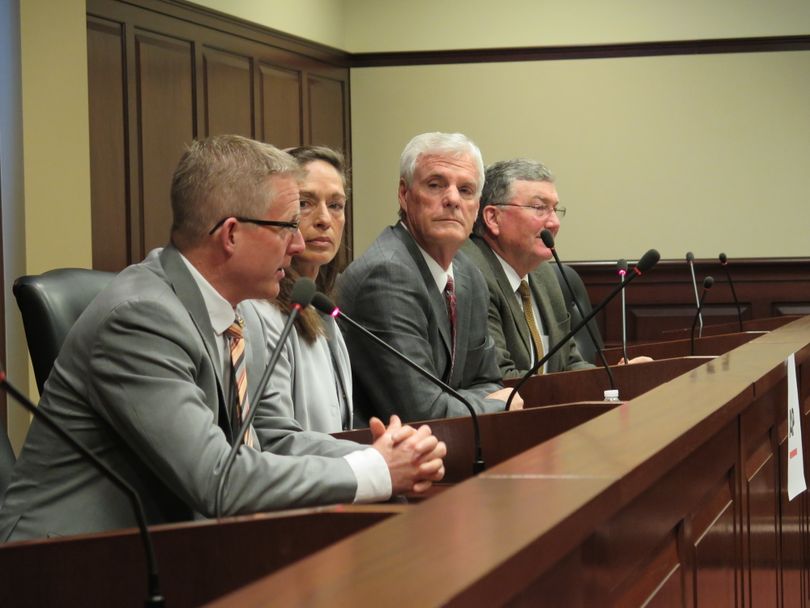Legislative leaders talk education, surplus, roads and tax cuts…

Top legislative leaders are addressing reporters this morning at the AP Legislative Preview. Among their comments thus far:
House Minority Leader Mat Erpelding, D-Boise, said his caucus hopes to “continue to partner with the majority party as much as possible on education policy in Idaho,” and also wants to address early childhood education, which he called “essential” and “something that we need to invest in sooner than later to try to stave off what the Department of Labor is referring to as a ‘silver tsunami’ with regard to our workforce in 10 years.”
Senate Minority Leader Michelle Stennett, D-Ketchum, said, “Education I think we can all agree on. I also agree that the early learning component is hugely important. I think that we just heard from the governor and you probably aren’t surprised that given the new administration, we probably aren’t going to talk about health care to the level that we would have hoped for.”
Senate President Pro-Tem Brent Hill, R-Rexburg, said, “We spend lot of our time talking about, particularly when there’s a surplus, talking about how much of that is going to go into education, how much is going into savings and how much is going to go into tax relief.” He said he’s “thrilled” with the agreement thus far on Idaho’s five-year plan to improve schools, and expects the state to “stick to that plan. We had very little controversy last year over public education funding because people are committed to the plan, there’s a good attitude toward it.”
House Speaker Scott Bedke, R-Oakley, said he expects discussion about the teacher-evaluation portion of the career ladder, to make sure that’s in place as scheduled; about continuing efforts to improve early reading by the third grade; and said lawmakers will be cautious about budgeting, particularly those from the agricultural sector who have seen their receipts fall significantly over the last two years.
He also addressed the now-expiring “surplus eliminator,” in effect for the past two years, which split any unexpected state surplus between state savings accounts and transportation projects.
“As was mentioned, the sunset goes off on the surplus eliminator, and we are looking at a surplus,” Bedke said. “You have three schools of thought. One thinks we ought to keep the sun up, as it were, put half into transportation and half into savings. Other say we have not filled our coffers back up to levels where we were pre-recession. And then the third school of thought says if you’re having a surplus, that means your tax rates are too high. ... There’s a lot of overlap, at least in the House, in each of these areas.”
Pressed by reporters as to which school he falls into, Bedke said, “I personally embrace tax relief.”
